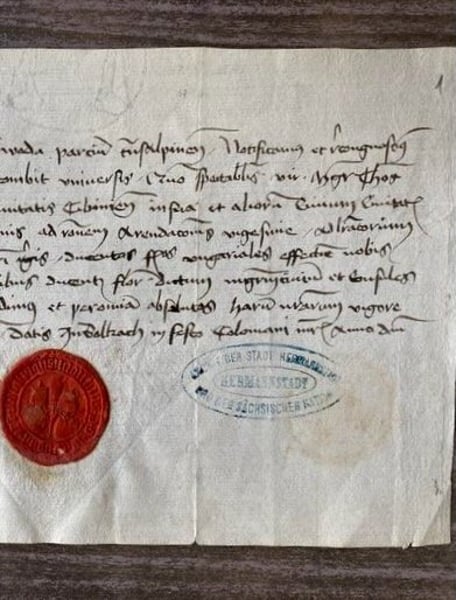Manténgase sano!

- Cara Murez
- Posted August 18, 2023
Did Vlad the Impaler, Inspiration for Dracula, Shed Tears of Blood?
The 15th century prince who inspired the literary vampire Dracula may have had medical issues that caused him to cry tears of blood, according to researchers unearthing this ancient mystery.
The prince, who was also a military leader, was known as Vlad III, Voivode of Wallachia and as Vlad the Impaler. He was also called Vlad Drăculea, translating to "the son of the dragon," and may be the inspiration for the character Count Dracula.
The theories about Vlad's medical issues come from scientific examination of his letters by a team that included Vincenzo Cunsolo, an associate professor of organic chemistry at the University of Catania in Italy.
Vlad III lived during the 1400s in the south of Romania.
He's blamed for killing more than 80,000 people, many by impalement. Though he was known to be ruthless, there's no evidence he was actually a vampire.
Among the artifacts remaining from his lifetime were several letters written at different points, relics from which scientists can glean information because of the molecules and proteins present on them.
For this study, researchers used a specialized plastic film called EVA, or ethylene-vinyl acetate, to extract any proteins or small molecules from the paper without damaging it.
They then used mass spectrometry to analyze these extracts.
Of thousands of different peptides found, researchers focused on those with a form of protein degradation that occurs with age, called advanced deamidation.
They knew that the most degraded proteins were likely the oldest, and thus most likely to have come from Vlad III, rather than from those who handled the letters later on.
Researchers found 16 proteins of human origin, relating to skin, breathing and blood.
They said the data they found suggests Vlad could have suffered from respiratory issues, and perhaps even a condition called hemolacria, which would have caused him to shed tears of blood.
Other proteins found indicate he could have been exposed to certain plague-related bacteria or fruit flies.
The findings were recently published in the American Chemical Society's journal Analytical Chemistry.
More information
The North Carolina Office of State Archaeology has more on the science of analytical techniques used in archaeology.
SOURCE: American Chemical Society, news release, Aug. 15, 2023





